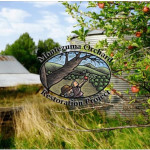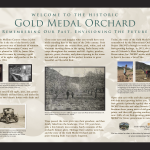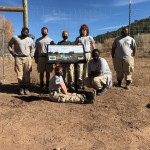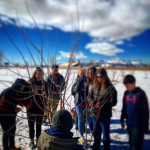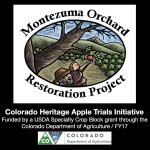Your Support Saves Lost Apples
Montezuma Orchard Restoration Project (MORP) has worked for over a decade to preserve Colorado’s fruit growing heritage and restore an orchard culture and economy to the southwestern region. With your generous support, MORP has documented nearly 500 varieties of apples that were planted in Colorado prior to 1930 – 50% are now considered functionally extinct. It has also compiled a list of 250 historic orchard sites located in Colorado. Of these, MORP has mapped and documented 111 sites containing 4,000 apple trees 80 to 135 years old. This survey work made it possible for MORP to submit apple leaf samples for identification by DNA testing to the USDA-Agriculture Research Station in Fort Collins, confirming 196 cultivars out of 490 samples. Results show that out of the 196 cultivars, 138 are rare and endangered cultivars not located in national or private collections. It is also probable that many of these varieties represent historic named varieties that are considered lost.
Now that we have captured these rare and endangered cultivars it is essential that MORP preserve them into perpetuity. As heritage fruits continue to gain the interest of gardeners, farmers, orchardists, horticulturalists, consumers, cider makers, and other fruit enthusiasts through MORP’s program work and national trends, old Colorado apples have an urgent and rare chance to be to be renowned again. This great diversity disappeared not because these varieties did not grow well here, but rather because many simply were not the shiny red apples representing the standard of the day.
Since 2014, MORP has worked to save the rare and endangered apple cultivars it has found in Colorado’s historic orchards by establishing school, community, research, and conservation orchards. Success include:
Gold Medal Orchard, Orchard Hub, Dolores Community Heritage Orchard, School Orchards, and Orchard Trials.

